Hay fever: Pollen bomb warning for UK as levels set to soar
Pollen counts are due to reach the Met Office’s top ranking over next few days
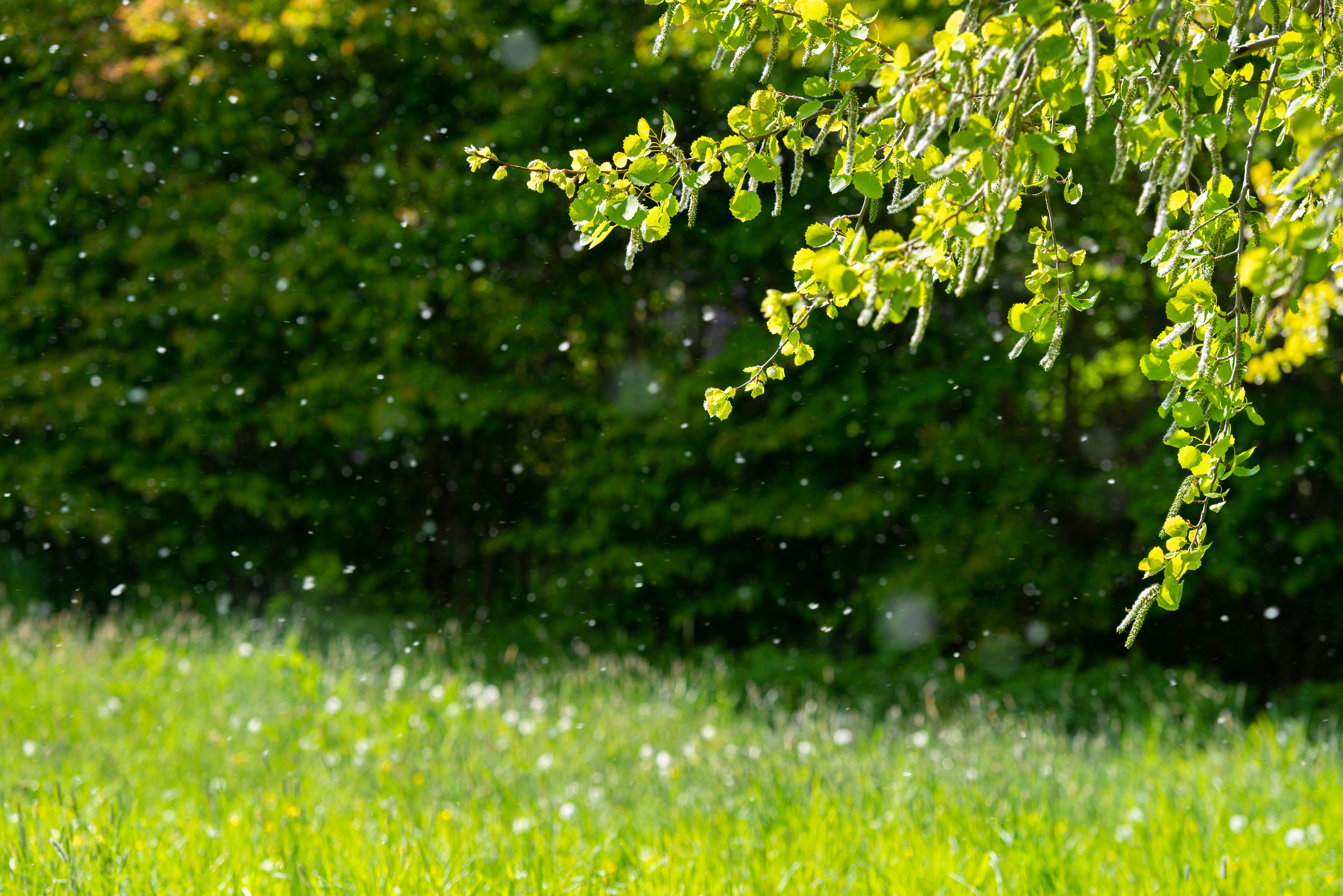
A pollen bomb is set to sweep across much of the country on Sunday and into the week, affecting hay fever sufferers, who have been warned to be careful.
The Met Office has predicted pollen counts will reach the forecaster’s top ranking of “very high” throughout most of the UK from Sunday through to at least Wednesday.
The forecaster said it is tree pollen levels that will be high – and while grass is the more common type of pollen to be allergic to, tree pollen still affects 25 per cent of people.
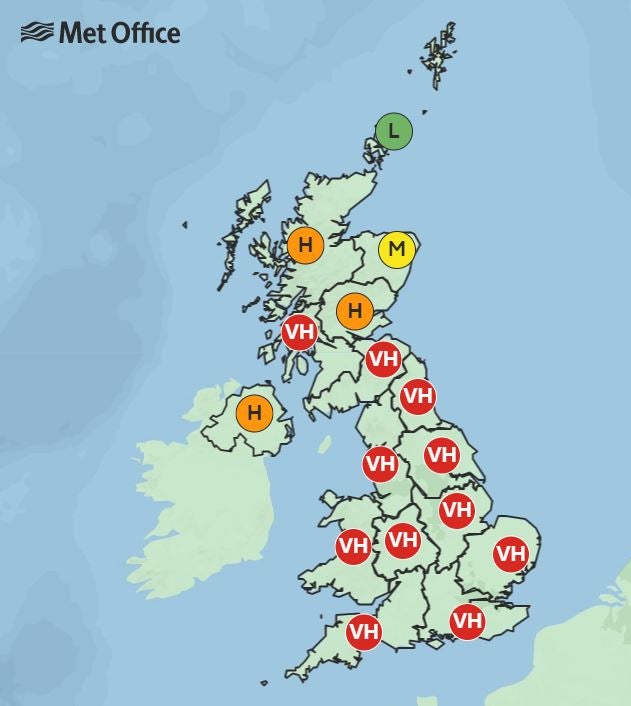
Honor Criswick, a Met Office meteorologist, warned: “If you are an asthma sufferer who suffers from tree pollen then care needs to be taken.”
England is due to be hit the hardest during that period, with all of England experiencing soaring pollen levels on Sunday. Then the area affected will grow even bigger on Monday, with the whole of the country expected to be impacted, apart from northern Scotland and Northern Ireland.
On Tuesday, most of the UK is predicted to still have high pollen counts, while the West will remain at very high levels. Wednesday is due to be similar to Tuesday, but North West England is expected to drop down to the “high” ranking.
Ms Criswick advised people to take medications for allergies, like antihistamines; to remove outdoor clothing when going indoors; to keep windows closed at night; and to keep houses clean. She added it is important people keep an eye on the pollen forecast so they remain aware of the current levels.
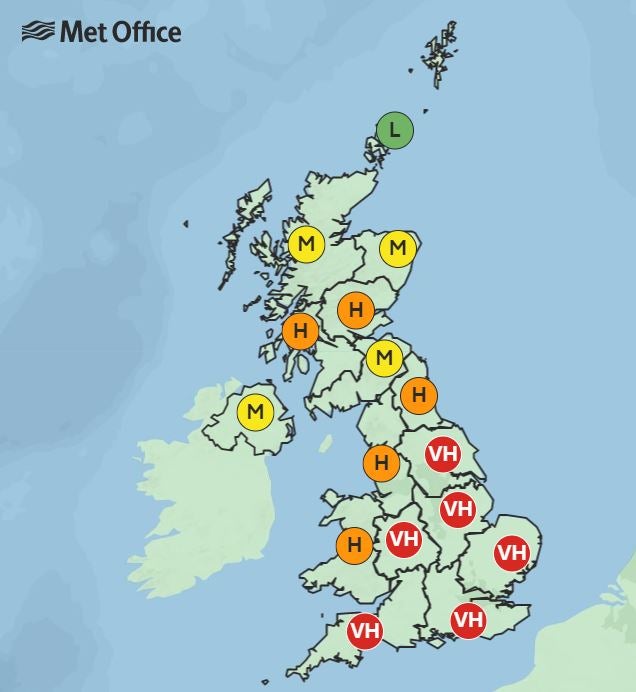
However, Craig Snell, from the Met Office, said: “Pollen is currently coming from trees, which affects less people than grass does in Summer – so although pollen levels are high, it won’t be really be affecting people who suffer from more typical summertime hay fever.”
Tree pollen usually arrives before grass, typically from late March to mid-May. Then grass normally lasts from mid-May until July. Weed pollen is another type that generally arrives at the end of June and stays until September.
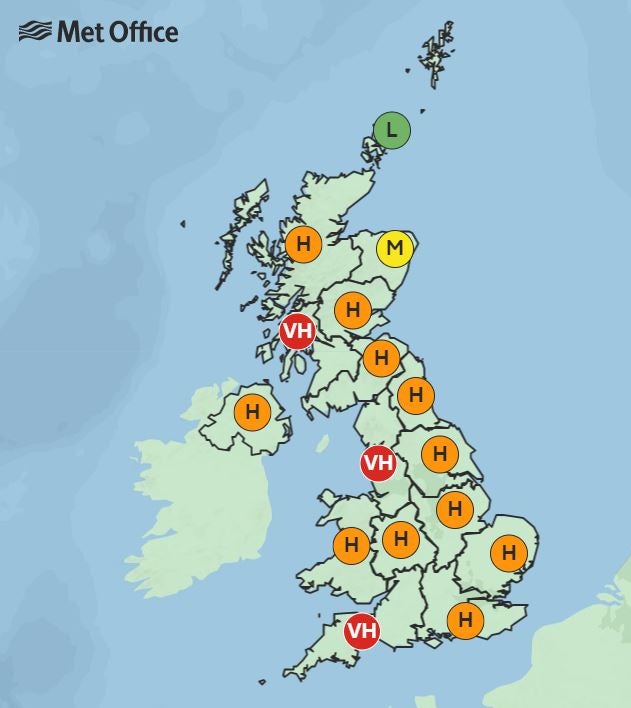
This is the UK’s second pollen bomb of the season. The Met Office issued its first “high” pollen alert last week, which covered most of England and Wales, signalling the beginning of hay fever season.
Hay fever is an allergic reaction to pollen, typically when it comes into contact with your mouth, nose, eyes and throat.
Sufferers are usually worst hit between late March and September, especially on warm, windy and humid days, when the pollen count is at its peak.
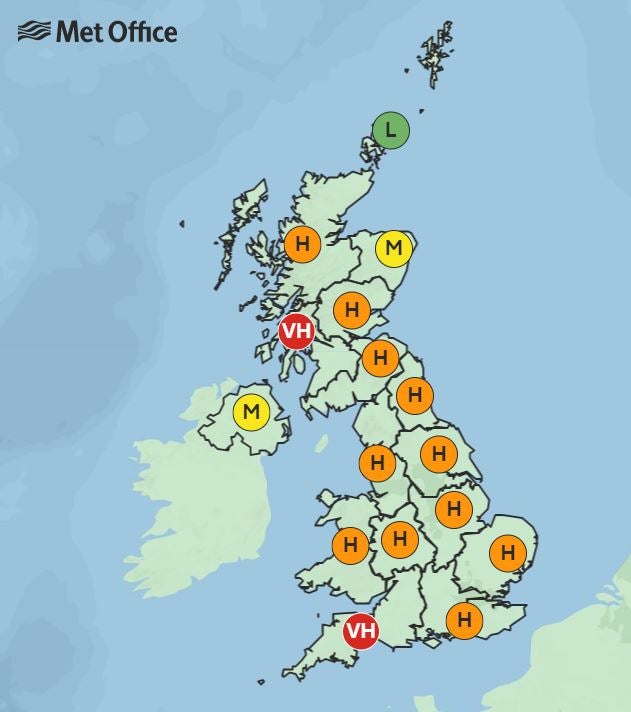
Symptoms of hay fever include sneezing, coughing, having a runny or blocked nose, drowsiness, and itchy, red or watery eyes.
Millions of Britons are affected by hay fever, with many relying on antihistamine drops, tablets or nasal sprays to ease their symptoms.
Join our commenting forum
Join thought-provoking conversations, follow other Independent readers and see their replies
Comments


Bookmark popover
Removed from bookmarks